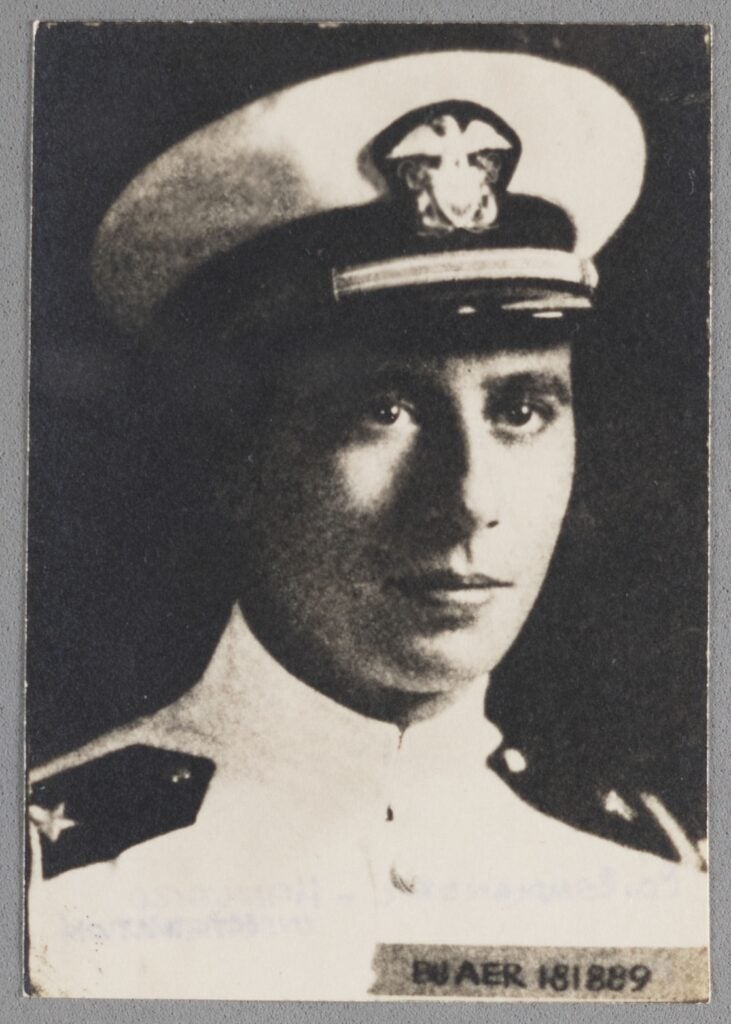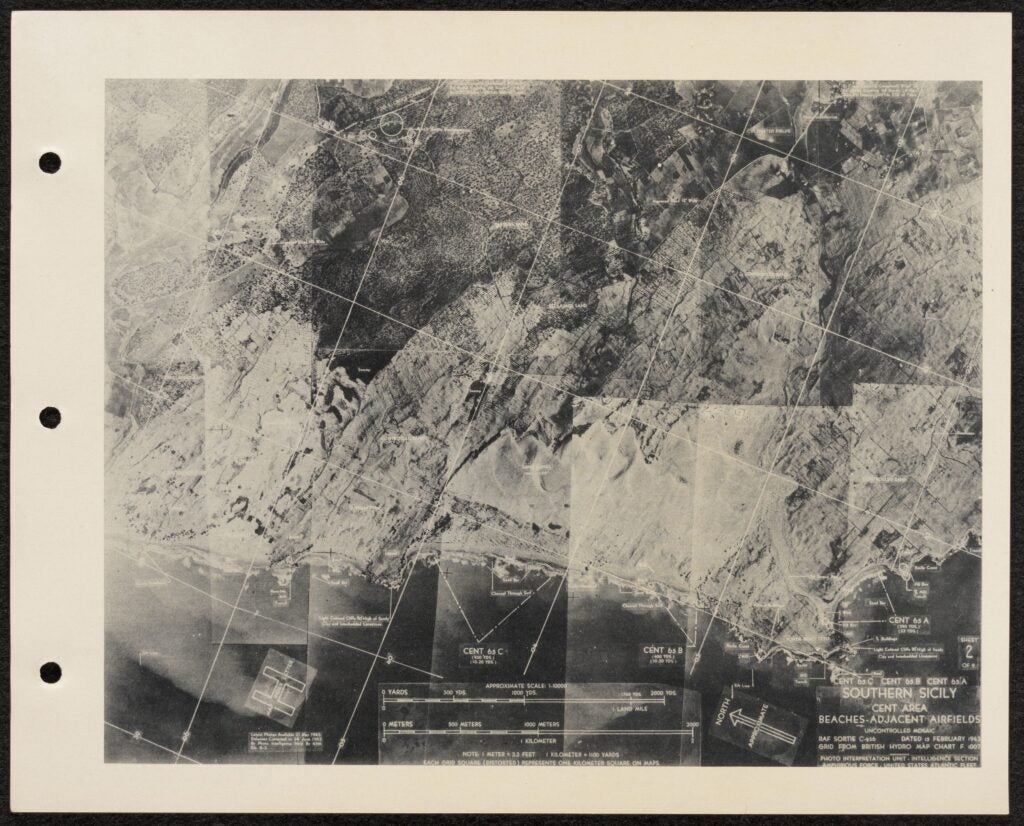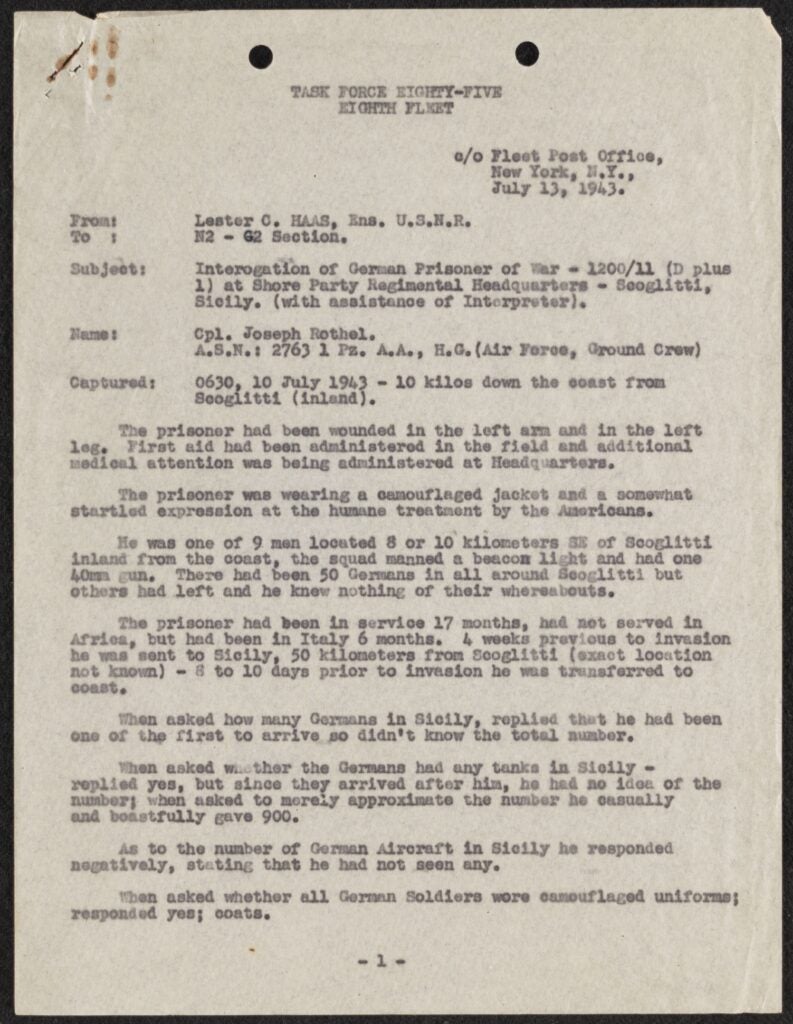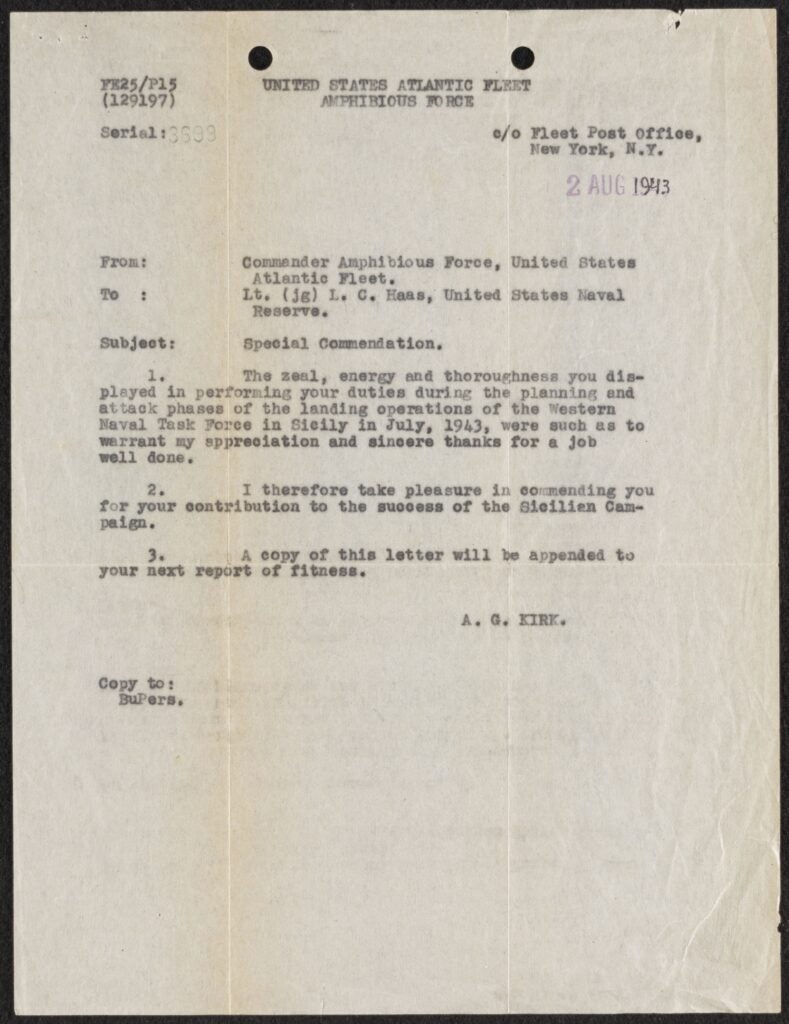Over the next year, in commemoration of the 80th anniversary of the end of World War II, Joyner Library Special Collections will be highlighting items from the East Carolina Manuscripts Collection that relate to the conflict and the individuals who served. See the first post here. The following post was contributed by John Dunning.
Lester C. Haas and Operation Husky
 Lester C. Haas. Image from the U.S. Navy Memorial Foundation Collection: Lester C. Haas Papers (#677.080), East Carolina Manuscript Collection, J. Y. Joyner Library, East Carolina University, Greenville, North Carolina, USA.
Lester C. Haas. Image from the U.S. Navy Memorial Foundation Collection: Lester C. Haas Papers (#677.080), East Carolina Manuscript Collection, J. Y. Joyner Library, East Carolina University, Greenville, North Carolina, USA.
Beginning July 9, 1943, the Allied forces invaded the island of Sicily off the southern coast of Italy. A little over five weeks later, they would wrest the rocky island from the Italian and German forces, making Sicily the first piece of the Axis homeland to fall to the Allies. Nicknamed Operation Husky, the struggle would lead to the ousting of Italian dictator Benito Mussolini and, later, sow the seeds for the eventual downfall of Adolf Hitler’s “Fortress Europe.”

Digest of Photo-Intelligence Preparatory to and During the Operation of “Husky” 10 July 1943. Item from the U.S. Navy Memorial Foundation Collection: Lester C. Haas Papers (#677.080), East Carolina Manuscript Collection, J. Y. Joyner Library, East Carolina University, Greenville, North Carolina, USA.
As a participant in the operation, United States Naval Photo Interpretation and Intelligence Officer Lester C. Haas served as Commander of Task Force 85 and 6th Amphibious Force on the U.S.S. Ancon for the Invasion of Sicily. Haas’ work interpreting photographs from reconnaissance flights helped with the operation planning. This included where men and equipment should land, the position of enemy guns, minefields, rifle pits, or munition dumps, roadblocks to avoid, and other obstacles to success.
In addition to studying photographs and planning for the attack, Haas took an active role in helping the primarily American, British, and Canadian troops secure Sicily for the Allies. A communication by Haas to his superiors details his work interrogating a German prisoner during the operation and the intelligence secured from the effort.

Interrogation of German Prisoner of War, Item from the U.S. Navy Memorial Foundation Collection: Lester C. Haas Papers (#677.080), East Carolina Manuscript Collection, J. Y. Joyner Library, East Carolina University, Greenville, North Carolina, USA.
On August 17, the remaining Axis forces evacuated the island and Sicily fell under the control of the combined Allied forces. For his role in taking Sicily, Haas was awarded Special Commendation by Admiral G. Kirk of the United States Navy.

Special Commendation, Item from the U.S. Navy Memorial Foundation Collection: Lester C. Haas Papers (#677.080), East Carolina Manuscript Collection, J. Y. Joyner Library, East Carolina University, Greenville, North Carolina, USA.
The success of Operation Husky helped pave the way for the Allies to gain a foothold in Europe. In September 1943, the Allies would seize control of most of Italy, and the lessons learned in Sicily and the broader Italian Campaign would prepare them for the invasion of Normandy, France on D-Day, June 6, 1944.
Visit the Ship’s Log as well as Joyner Library’s social media channels to learn more about materials related to World War II that are a part of the East Carolina Manuscripts Collection’s holdings. Joyner Library Special Collections will be displaying an exhibit of items and individual stories related to World War II during the summer and fall of 2025.
